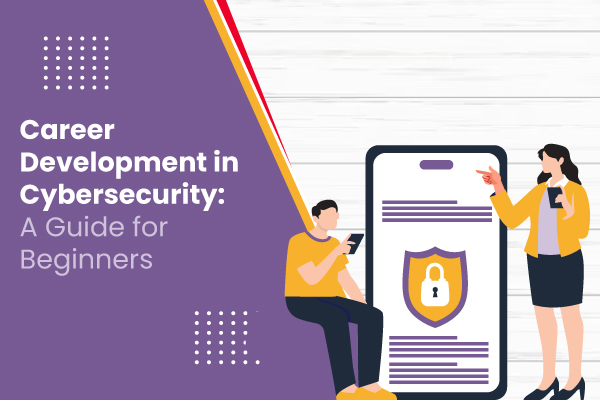Career Development in Cybersecurity: A Guide for Beginners

Padh Le Dost
July 7, 2025
As technology advances, so do cyber threats. From data breaches to ransomware attacks, cybersecurity is now at the heart of every organization’s strategy. But for beginners, breaking into the field can feel overwhelming. Where do you start? What skills do you need? And how do you turn curiosity into a thriving career?
At Padh Le Dost, we’ve helped thousands of learners map out their career paths with accessible, real-world resources. Here’s your beginner-friendly guide to launching a successful career in cybersecurity.
Why Cybersecurity?
Before diving in, it’s worth understanding why cybersecurity is such a powerful career path in 2025:
- High Demand: Over 3.5 million cybersecurity jobs are projected to remain unfilled globally
- Great Pay: Entry-level roles often start at ₹5–7 LPA in India, with quick growth opportunities
- Meaningful Work: You’ll protect people, systems, and businesses from real threats
Step 1: Understand the Basics of Cybersecurity
Start with foundational knowledge. Learn:
- What cybersecurity is
- Types of cyber threats (malware, phishing, DDoS attacks)
- Basic network concepts and protocols
- Key security principles (confidentiality, integrity, availability)
Step 2: Learn Essential Skills
Begin building technical and soft skills that make you job-ready:
- Technical:
- Networking & firewalls
- System administration (Windows, Linux)
- Programming basics (Python or Bash)
- Security tools (Wireshark, Nmap, Metasploit)
- Soft Skills:
- Problem-solving
- Attention to detail
- Communication (for reporting and team coordination)
Step 3: Choose a Career Path
Cybersecurity isn’t one-size-fits-all. Explore these beginner-friendly paths:
- Security Analyst – Monitors and analyzes security incidents
- Penetration Tester (Ethical Hacker) – Finds vulnerabilities before attackers do
- SOC Analyst – Works in the Security Operations Center responding to threats
- GRC Professional – Focuses on compliance, audits, and security policies
Step 4: Work on Projects
Show, don’t just tell. Start small:
- Set up a home lab
- Simulate phishing attacks in a test environment
- Analyze logs and monitor suspicious activity
- Participate in Capture the Flag (CTF) challenges
Why It Matters: Projects show initiative and practical knowledge—key for internships and job applications.
Step 5: Earn Industry Certifications
Certifications prove your skills and boost credibility. Start with:
- CompTIA Security+
- Certified Ethical Hacker (CEH)
- Cisco Certified CyberOps Associate
- Google Cybersecurity Certificate
Step 6: Build Your Resume and Apply Smart
Highlight:
- Practical projects
- Certifications
- Technical skills
- Internship experiences (even simulated or volunteer work)
Use platforms like LinkedIn, Naukri, and niche cybersecurity job boards to start applying. Join communities like Reddit’s r/cybersecurity or the Infosec Discord for tips and referrals.
Step 7: Keep Learning and Stay Updated
Cybersecurity changes fast. Make lifelong learning a habit:
- Read digital books and blogs
- Follow cybersecurity news and YouTube channels
- Attend webinars and community events
Tip: PLD’s online library makes it easy to stay updated without needing to enroll in expensive programs.
Final Thoughts
Starting a career in cybersecurity may seem daunting, but with the right plan and the right resources, you can grow from a curious beginner to a confident professional. At Padh Le Dost, we’re here to walk that journey with you—with digital books, certification roadmaps, and career strategies built just for learners like you.
Ready to take the first step? Explore the Cybersecurity Career Compass and let your future in cybersecurity begin—today.

Padh Le Dost
February 20, 2026
Career Planning Without Pressure: A Calm Way Forward

Padh Le Dost
February 18, 2026
Resume Tips for Students and Freshers (Even If You Have No Experience)




